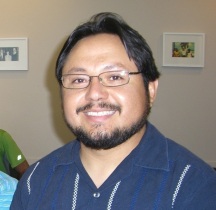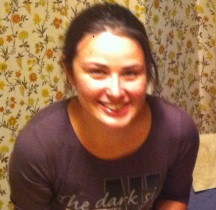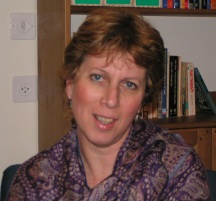by Christine LaCerva
To broaden our community conversation about trauma, I reached out to international colleagues of the Social Therapy Group and the East Side Institute (ESI), our education, training and research center. I asked them to speak about trauma in their countries, and how they use their creativity and passion to go beyond victimization and powerlessness.
Miguel E. Cortés Vazquez lives in Juarez, Mexico, near the US/Mexican border. As a doctoral student in experimental psychology at Washington State University, Miguel became deeply aware of his minority status and of how psychology’s core assumptions could not be addressed within the framework of cognitive psychology. He studied critical psychology, socio-historical psychology, liberation psychology and Paulo Freire’s and systemic family therapy. Miguel is a graduate of the International Class of the ESI, where he trained in the methodology of social therapy.
In the past three years in my city I’ve experienced the following: armed robbery, a bomb attack seven blocks from my house, the kidnapping of my best friend, the disappearance of a young woman at the NGO where I work, the murder of a young hip-hop artist, a dismembered head dropped two blocks from my house, a robbery at the Fred Newman Centre where I practice social therapy, and several robberies of my car. This sounds traumatic, but I’ve been lucky. Many families have suffered tragedy in our city due to all the drug related violence, murders of women, and obscene corruption. In this environment most people at one point or another feel traumatized — either they have suffered violence, or someone close to them has. There is plenty of helplessness, of not trusting that conditions will improve, and the feeling that at any moment something tragic might happen to you or people close to you.
It is so hard not to relate to this environment as a victim. But along with the helplessness and rage, people are building, getting together, creating organizations, doing community work in response to all that is wrong with our society, our authorities and our government. Creating conditions for change is, in my opinion, a collective therapeutic activity that focuses — like the group psychotherapy we practice — on development and not problem solving. We are contributing to our community through education and therapeutics, building hope with others, building the conditions to create a more humane city.
Elena Boukouvala lives in the United Kingdom. She has a masters in drama and movement therapy from the University of London and has worked as a psychotherapist and drama therapist in a wide variety of settings, including LOGOS Rehabilitation Centre for people with history of addictions in Thessaloniki, Greece. She is currently a playworker with young people at Westminster Society for People with Learning Disabilities. She also co-facilitates a project supporting people who work with children with autism in a Saharan refugee camp.
Recently I returned for a year to my home country, Greece, to find my family and my community traumatized by the financial crisis. I chose to be with this trauma silently — not performing for a while the role of the therapist, but looking at the poverty, the increased criminality, and the suicides from the window of a chicken shop. Taking the bus to work, I met people, heard their stories and became curious about them. I talked with them. Not only to hear their voices or speak mine but to have a dialogue.
I see people experiencing trauma in Greece when a father comes home without enough money to feed his children because his working hours were cut and his loans were not. When the hospitals are filled with beds in the corridors and the doctor says “I’m sorry, I’m too stressed to give you a prescription — I have been responsible for the whole department because of the strikes.” When a woman in her 20s folds her dreams to travel around the world in the pockets of a waitress apron in order to support her family, since her mother had a stroke from the stress. When there are three people sitting on one street holding the same sign: “I am hungry.”
I see people becoming creators of their realities in Greece when the father comes home with less money and with a song — it’s the first time in a long time that he can spend time with his children. When the doctor looks down the corridor to see women in white gowns talking to each other, laughing and sharing memories, and one of them says to him, “These words heal me more than your meds.” When a person living on the street shares his story on a TV documentary: “I am a painter, I used to have an art studio and a house and now I live on a bench. I miss having a bath; I still like to draw.”
My experience of poverty in Greece reminds me of what can have value without cost: community, art and language. It has taught me that life is not just to be lived, but to be created, and that sometimes the most and the least that I can do is to initiate a dialogue.
I met Tova Buksbaum as a fellow presenter at the “Psychology and the Other” Conference at Lesley University in Cambridge, Massachusetts. She is a progressive and humanitarian psychologist.
I am a member of two activist groups in Israel: Psychoactive – Mental Health Professionals for Human Rights, and the Israeli-Palestinian Bereaved Families Forum for Reconciliation and Peace. I live and work in a small town in Galilee.
As do most psychologists, for a long time I believed that we should not mix therapy and politics. But after a long journey seeking to integrate my professional and my activist identities, and to learn from my patients, I have changed my beliefs and practice.
My challenge — as a Jewish therapist with my Palestinian patients — is to contend with the trauma and the stories, feelings and thoughts derived from it, while remaining aware of the fact that I am a member of the collective that bears responsibility for the trauma and continues to inflict injustice upon them.
Arab patients come to therapy with the same suffering and complaints as do Jewish patients. They never seek therapy for their suffering from discrimination as members of a minority group. But I make an effort to let them know that there is room in our therapeutic dialogue for all that stems from their collective, family or individual trauma.
As a therapist, I am aware of the importance of giving space to such patients’ traumatic stories, pain and feelings of humiliation. I see therapy as a place that enables them to testify before a human being — and I imagine that many of you realize the importance of doing so for traumatized people who have suffered evil at the hands of other human beings.
But I’m not a neutral listener. I’m not only their therapist. We are not only therapist and patient — each of us is a representative of our collective and we necessarily bring this status into our discussion.
One can ask: is it worthwhile to bring all this complexity into the therapy? Is it therapeutic in fact?
I believe that our complex discourse grants patients an empowering and productive experience: most feel relieved to talk about these issues with a Jew and to receive acknowledgment of their thoughts and feelings — it is something they are not used to. I believe that the opportunity I give to my Palestinian patients to talk to me about their trauma — in the presence of my Jewish identity — helps to heal some of the schisms they experience in their life — between Arab and Jew, between “doer” and “done to,” between aggressor and victim.
Therapy likewise gives me an opportunity to recognize my racist and aggressive tendencies and confronts me with the challenge of acknowledging and facing up to those parts of me. Therapy doesn’t change the reality — but I believe that in the process I have described here we create a reality where reconciliation and peace are possible.
I hope you are inspired by the creativity and humanity of these activists, and please share your responses to their compelling voices.
Happy New Year, everyone!






 Posted by Christine LaCerva
Posted by Christine LaCerva